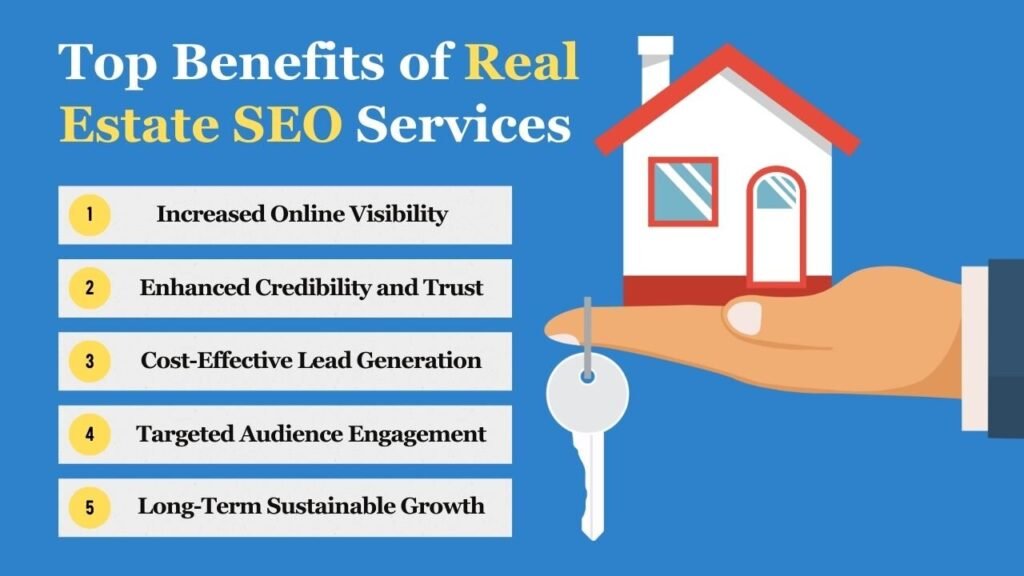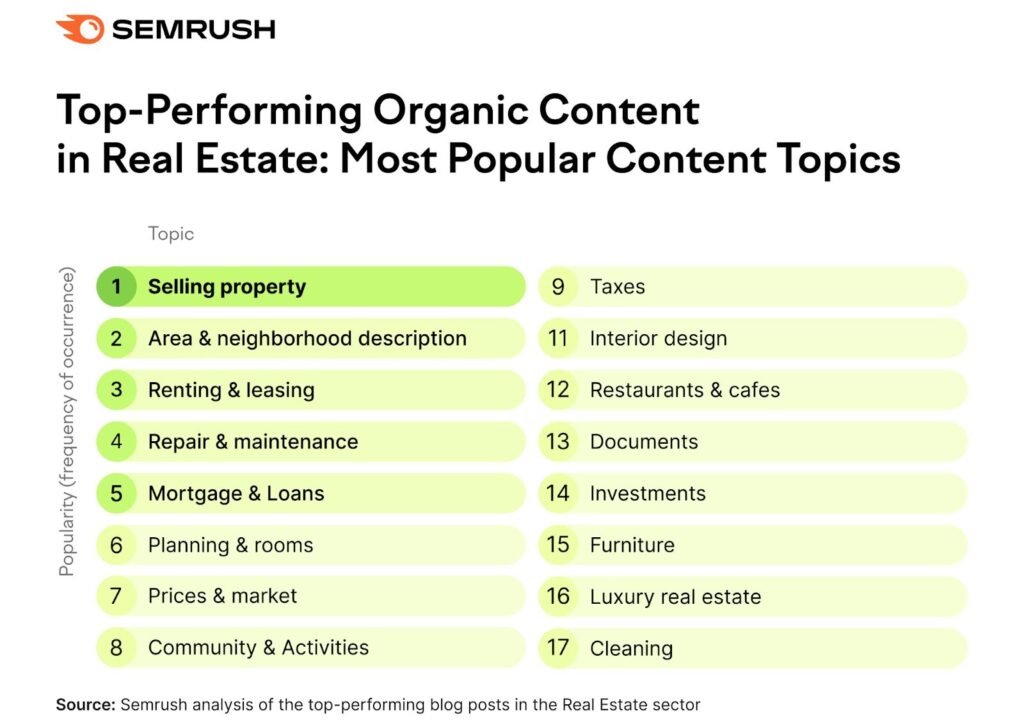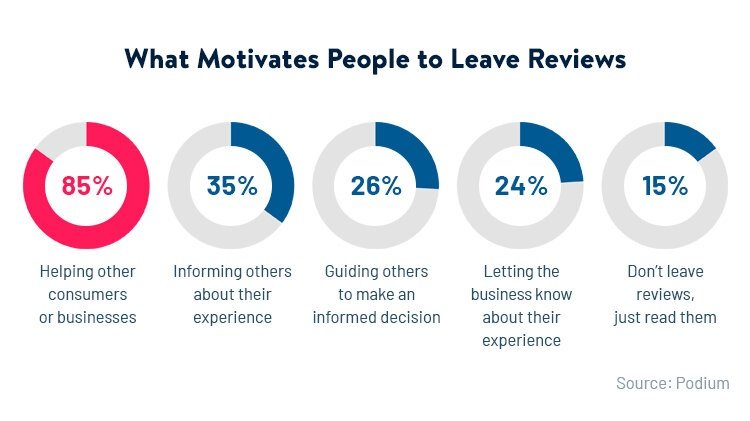
With the real estate market becoming increasingly competitive, search engine optimization (SEO) has become a vital tool for real estate businesses, especially those with limited budgets. Whether you’re a small agency or a well-established firm, understanding and implementing SEO can help attract more clients, increase brand visibility, and reduce reliance on costly advertising.
This guide will walk you through everything you need to know to improve your SEO, from keyword research and local SEO to content creation and tracking success.
Why SEO is Essential for Real Estate Businesses
SEO is one of the most cost-effective ways to build a sustainable online presence. Unlike paid advertising, which requires constant funding, SEO offers long-term benefits by improving your website’s ranking and visibility organically. High rankings increase credibility, with 75% of users never scrolling past the first page of search results. For real estate agents, ranking on that coveted first page can translate to significant traffic and leads.

Real Estate SEO Basics for Small Agencies and Firms
- Keyword Research
Start by identifying high-traffic, relevant keywords for your business. Keywords like “homes for sale in [City]” or “real estate agent in [Location]” are essential, as well as long-tail keywords that capture specific searches. Using tools like Semrush or Ahrefs can help you identify the best keywords based on competition and search volume. - Content Planning
Consistent content creation is key. Blog about local events, real estate trends, and market insights to capture traffic and showcase expertise. For example, articles like “Top Neighborhoods in [City]” can drive traffic from potential home buyers researching the area. - On-Page SEO
Optimize each page by including primary and secondary keywords in titles, meta descriptions, and headers. Keep paragraphs concise and use structured headers (H1, H2, H3) to make the content scannable, as search engines prefer well-organized pages.
Essential Local SEO Techniques for Real Estate
Since most real estate searches are local, focusing on local SEO is crucial. Here are key strategies to consider:
- Google Business Profile
Set up and optimize your Google Business Profile with accurate contact details, high-quality images, and positive client reviews. This profile will help you appear in local searches, especially when potential clients search for “real estate agent near me” or similar terms. - NAP Consistency
Ensure your business’s Name, Address, and Phone Number (NAP) are consistent across all online listings. Any inconsistencies can harm your local SEO, as search engines rely on this data to verify your business’s legitimacy. - Localized Content
Create neighborhood guides, market trend reports, and property insights that speak to the specifics of your location. Not only does this improve your SEO, but it also builds authority as a local expert, helping you connect with clients in your community. - Local Citations & Directories
Add your business to local directories and real estate-specific sites like Zillow and Realtor.com. Citations in reputable directories strengthen your online presence and credibility, especially when paired with high-quality backlinks from relevant sites.
Building an SEO-Friendly Real Estate Website
- Responsive Design
As over 60% of real estate searches happen on mobile devices, your website must be mobile-friendly. Ensure a seamless experience on all devices by using responsive templates and testing your site on various screen sizes. - Page Speed
Real estate sites often have image-heavy pages, which can slow down load times. Compress images and use caching to improve speed, as a fast-loading site enhances user experience and boosts SEO rankings. - Clear Navigation
Organize your website with easy access to property listings, about pages, contact information, and blogs. Clear navigation not only improves SEO but also keeps users engaged and on your site longer.
Content Marketing for Real Estate SEO
- Blogging
Regular blog posts are one of the best ways to boost SEO and engage potential clients. In fact, businesses with blogs generate 126% more leads than those without. Cover topics like “Market Trends in [Location]” or “Tips for First-Time Home Buyers” to draw traffic and build credibility. - Video Content
Video content, such as property tours, neighborhood walkthroughs, and market updates, can set you apart from competitors. With 85% of buyers preferring agents with video content, creating engaging videos can improve your reach and engagement. - Images and Visuals
High-quality images with relevant alt text enhance both user experience and SEO. Use images to showcase properties, neighborhoods, and recent sales, and ensure that each has optimized alt text to support search engine indexing.

Schema Markup for Real Estate Websites
Schema markup helps search engines understand your content context. By adding real estate-specific schema, like “RealEstateListing” and “LocalBusiness,” you can increase the likelihood of appearing in rich snippets on search results, which can lead to higher click-through rates.
- RealEstateListing Schema
Use schema markup to display property details such as price, location, and number of bedrooms directly in search results. This visibility can increase clicks and generate more leads. - LocalBusiness Schema
Include essential information about your business, such as hours of operation, address, and phone number, to help local clients find you easily.
Link Building Strategies for Real Estate
- Guest Blogging
Reach out to local sites or real estate publications to publish guest articles that link back to your site. This boosts authority and increases your reach within the local market. - Digital PR and Networking
Use local press, community sites, and events to generate backlinks. Features in local publications and websites related to your community build credibility and establish authority in your niche. - Internal Linking
Link between related pages, such as blog posts, property listings, and neighborhood guides, to improve SEO and help users navigate your site more efficiently.
Leveraging Social Media for Real Estate SEO
Social media indirectly supports SEO by driving traffic to your website and enhancing brand awareness. Here’s how to make the most of it:
- Content Sharing
Share blog posts, videos, and property listings on Facebook, Instagram, and LinkedIn to reach a broader audience. Regular updates keep clients engaged and position you as a reliable resource. - Engage with Local Community
Join local groups, comment on relevant posts, and participate in discussions to build authority and drive organic traffic to your website. - Encourage User Reviews
Positive reviews on social media can boost trust and authority, helping you attract new clients.

Measuring Real Estate SEO Success
- Tracking Metrics
Use tools like Google Analytics to monitor site traffic, engagement, and conversion rates. Track changes in traffic to see which strategies are working and which may need adjustments. - SEO Tools
Semrush, Moz, and Google Search Console are essential tools for tracking keyword rankings, backlinks, and page performance, helping you refine your strategy as needed. - Adjusting Strategy Based on Data
Use analytics to inform your strategy. For example, if certain blog posts drive significant traffic, consider creating related content to build on this success.
Common SEO Mistakes in Real Estate and How to Avoid Them
- Overlooking Mobile Optimization
Since most real estate searches are done on mobile devices, failing to optimize for mobile can harm your SEO and limit accessibility. - Keyword Stuffing
Avoid overusing keywords as it can lead to penalties. Instead, focus on natural language and relevant phrases that provide value to readers. - Ignoring Local SEO
Target specific areas within your content and business listings to improve local search rankings, which is essential for attracting local clients.
Niche-Specific SEO Strategies for Different Real Estate Sectors
- Luxury Real Estate SEO
Use high-end keywords like “luxury condos in [City]” and emphasize premium visuals and polished site design to attract upscale clients. - Commercial Real Estate SEO
Target business-focused keywords and ensure listings are optimized for location and property specifications. - Investment Properties
Create content that appeals to investors, such as ROI analysis, property forecasts, and financial insights.
Why You Should Hire Us for Your Real Estate SEO
Achieving a strong online presence in the real estate sector requires expertise, strategy, and ongoing support. Our agency provides comprehensive digital marketing solutions, covering everything from SEO and website design to content creation, social media management, and digital strategy. Unlike many agencies that charge thousands per month, we offer full-service solutions at a fraction of the cost, making SEO and digital marketing affordable for small and budget-conscious real estate firms. With our expert support, your business can achieve consistent, sustainable growth online. Reach out to us today to start transforming your real estate business!
Frequently Asked Questions (FAQs)
Q1: How long does real estate SEO take to show results?
Typically, results are visible within 3 to 6 months, with full benefits seen after a year of consistent effort.
Q2: What are the best keywords for real estate SEO?
Focus on both broad and specific keywords like “homes for sale in [City]” for general traffic and “luxury homes in [Neighborhood]” for niche markets. This approach helps you target diverse clients with relevant search terms, improving search engine ranking.
Q3: How can small businesses compete with larger real estate sites?
Small businesses can compete by focusing on local SEO, using keyword research, and producing high-quality, community-focused content. Building relationships within your community and optimizing for niche keywords can give smaller sites an edge in local searches.
Q4: What is schema markup, and do I need it for my real estate site?
Schema markup is structured data added to your website’s HTML that helps search engines understand content better, enhancing search visibility. Real estate sites can benefit from schema markup on listings, agent profiles, and reviews.
Q5: How does local SEO differ from traditional SEO for real estate?
Local SEO focuses on appearing in location-based searches by optimizing business profiles, using consistent NAP information, and generating location-specific content. Traditional SEO is more about general keyword optimization and backlink building.
Q6: Should I use a blog for real estate SEO?
Yes, blogging improves SEO by providing fresh content and engaging potential clients with market insights, local guides, and helpful advice. Blogs also boost site authority and attract organic traffic by targeting relevant keywords.